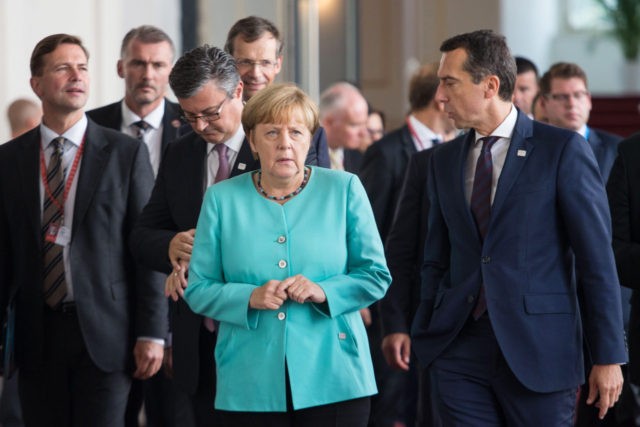Britain will invoke Article 50, triggering the process to leave the European Union, in January or February EU Officials have claimed, following confidential talks with the Prime Minister Theresa May.
Donald Tusk, the President of the European Council, told a meeting of European leaders in Bratislava that Mrs May had told him it was “quite likely” that Article 50 would be invoked “either January or February 2017”.
Mr Tusk, who chaired the meeting, said: “It was a sad moment for Europe when the British people decided to leave.
“Our assessment is sober but not defeatist. While the EU is not perfect it is what we have best. That is why we are determined to correct the past mistakes and move on as an EU as 27.”
However, he insisted that the remaining leaders would “protect the interests of the 27, not the leaving country” during negotiations, the Telegraph has reported.
“I hope we will be effective and maybe even stronger than before the British referendum,” he added.
The delay is causing concern in Britain among Eurosceptics who would like to see Article 50 triggered sooner. UK Independence Party MEP Mike Hookem had demanded that Mrs May explain the delay, saying: “If Donald Tusk is to be believed it supports our fears that the Tory government is dragging its heels on Brexit.
“We know that many within Westminster have no appetite whatsoever for leaving the EU.
“Theresa May must explain to the British people if and why she is delaying, particularly given so many countries have supported bilateral trade deals.
“There should be no fear whatsoever in the UK going forward as a free, independent nation. We should be embracing the opportunity not running away from it.”
Equally, the announcement is likely to cause consternation among EU officials, who have repeatedly expressed a desire to see Britain go sooner rather than later.
Despite this, the Commission President Jean-Claude Juncker has again insisted that no quarter can be given to Britain over the issue of free movement of workers.
“We want to have very good, very close relation with the UK,” Mr Juncker told a news conference, but Europe was “sticking its position,” he said, adding: “I cannot see any possibility of compromising on that issue.”
Yet during the summit of 27 European leaders – Mrs May was not invited to enable her colleagues to determine how to continue post-Brexit – German Chancellor Angela Merkel admitted that the EU was in a “critical situation” following the British vote to leave.
The scale of disagreement was made clear at the culmination of the summit, when the Italian Prime Minister Matteo Renzi refused to share a platform with Mrs Merkel and the French President Francois Hollande following disputes over economic and immigration policies.
“I can’t give joint press conference with Merkel and Hollande as I won’t follow a script to make people believe we all agree,” he said.
Calling for Europe to abandon austerity, he slammed Germany for their trade surplus saying “Germany does not respect the rules,” La Repubblica has reported.
Meanwhile Mrs Merkel has banned her colleagues from describing the migrant crisis which continues to effect Europe as “chaos.” Objecting to a joint statement on border controls to be issued at the culmination of the meeting, Mrs Merkel insisted that a line asserting that Europe is “never to allow a return to the chaos last year,” be deleted, and replaced with a phrase referring merely to “uncontrolled flows,” a source told the Mail.

COMMENTS
Please let us know if you're having issues with commenting.